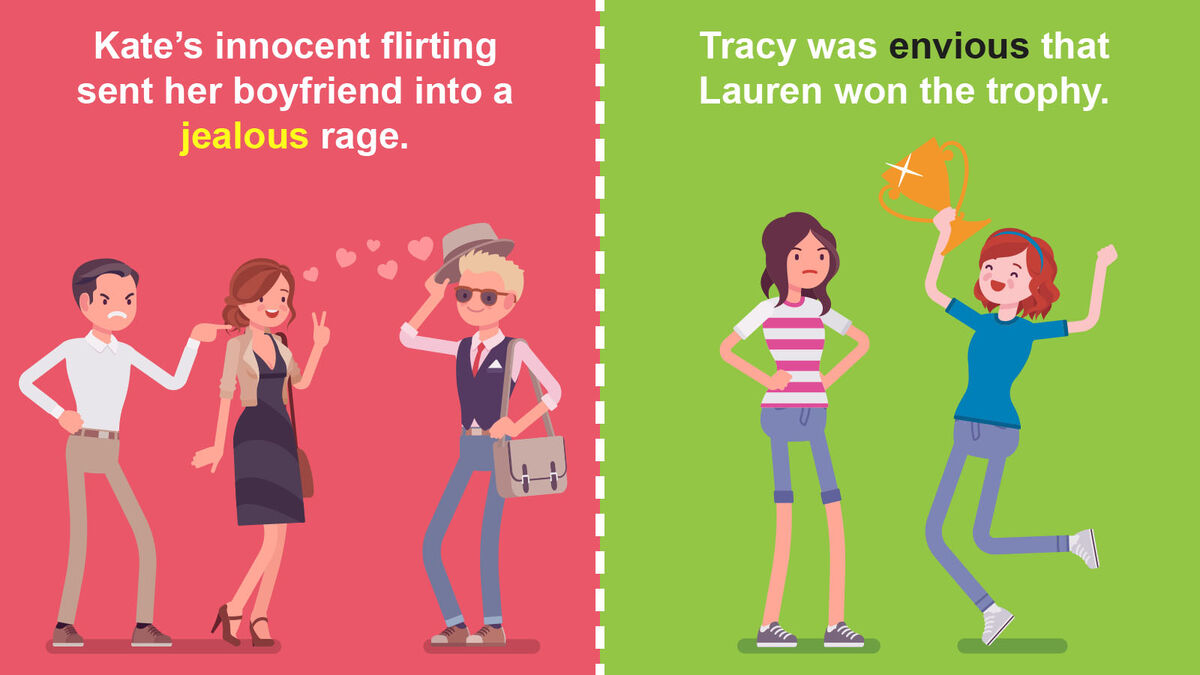Smelt is also used in the metal ore extraction industry.

'Just Deserts' or 'Just Desserts'?
The usage advice you deserve
Smelt is also used in the metal ore extraction industry.
I have yet to see a rouge elephant but I seen reports of their existence. Apparently one should avoid them for some reason
You can claim all you want that it’s an archaic British spelling, but I’m still going to say “he who smelt it, dealt it”.
After Sarah Palin published her book Going Rogue. a parody appeared under the title Going Rouge.
Envy and Jealousy.
Strictly speaking, they mean different things (Jealousy requires three people), but they are not used synonymously.
Penultimate — second to last.
We had a thread about this, a couple of years ago.
ETA here it is, it was a question I had 3 years ago —
I am an engineer, not a writer, and yet I find myself responsible for writing an SOP. I am not enjoying this. How can I succinctly state that something is important but it’s not the most important thing, that there is something else of higher importance? Here is my draft so far: “These products are to be first and foremost, safe, accurate, and effective. It is of penultimate importance that they be developed as quickly as reasonably practicable.” So, speed is of secondary importance. But spee…
That reminds me: The phrase is “just deserts”, not “just desserts”. Deserts are what is deserved.
Wow, thanks! Ignorance fought.

The usage advice you deserve
The phrase is “just deserts”, not “just desserts”. Deserts are what is deserved.
I think this one is probably doomed, and maybe it makes sense that it dies. “Desert” is archaic, and the non-archaic homophone fits the meaning metaphorically.
Envy and Jealousy.
Strictly speaking, they mean different things (Jealousy requires three people)
Are you really suggesting that “I’m jealous that you went on vacation to Hawaii” or “He’s jealous of her success” are incorrect? Glancing through the dictionaries, in most cases none of the first examples given for jealousy involve a third party.
Well, I think that most would agree that @Colibri was the board’s expert on such matters. I defer to his opinion which he expressed in several threads.
@Colibri is saying that the definition of the word poisonous just encompasses venomous in common usage. A position I have some sympathy for.
You appeared to be implicitly respecting the strict distinction in meaning, yet claiming that it’s logically okay to call a snake poisonous since anything venomous contains poison that would harm you if you ate it. Maybe you end up in the same place in how you describe snakes, but I think that’s a subtle difference. Your position would appear to depend on the biochemical reality of whether eating a venomous snake would actually harm you.
Envy and Jealousy.
Strictly speaking, they mean different things (Jealousy requires three people)
I see that in earlier usage this distinction did exist. Apparently the etymology of jealous is shared with zeal, so the progression was from “zealous in love” to possessive. And this is interesting:
Most of the words for ‘envy’ … had from the outset a hostile force, based on ‘look at’ (with malice), ‘not love,’ etc. Conversely, most of those which became distinctive terms for ‘jealousy’ were originally used also in a good sense, ‘zeal, emulation.’ [Buck, pp.1138-9]
jealous | Etymology of jealous by etymonline
Also in Middle English sometimes in the more positive sense, “fond, amorous, ardent”
So I wonder about the 17th century, if the biblical translation “jealous God” did not actually carry the connotation of a bunny-boiling lunatic.
Jibe: to agree or closely correspond with
Jive: to engage in deceptive or meaningless talk, to attempt to fool
Both have multiple definitions, but I often hear people say two things “jive” when they match up correctly. Years ago I worked for a retail chain, with a supervisor who was forever telling me to “make these numbers jive,” when I tallied such things as merchandise in stock. When the chain went bankrupt I wondered how just how badly the figures jived.
“make these numbers jive,”
Of course “jive” is also a dance, so “make these numbers dance” isn’t so bad.
It is of penultimate importance that they be developed as quickly as reasonably practicable
Reminds me of the scientist who labelled his WMD as “Ultimate Weapon Mk1”
“Ultimate Weapon Mk1”
We hope that thousands of customers will buy our unique product.
Over in the Wordle thread, there was a discussion over “trice” and “thrice”.
trice: quickly, as in “I finished it in a trice”
thrice: three times, as in “once, twice, thrice”
Or, in the case of the Buckwheat character’s singing, “You’re once, trice, free times a mady”. Neither are used much anymore.
Glancing through the dictionaries, in most cases none of the first examples given for jealousy involve a third party.
Some dictionaries list meanings in order of age, others in order by most used, and some I can’t figure out at all. You used to be able to go through the fine print at the beginning of print dictionaries to learn their idiosyncrasies but I can’t find that info online.
As for two vs. three:

Get a clear definition of jealousy and envy. Examine the difference between jealousy and envy through unique examples.
Envy is often confused with jealousy. However, where jealousy takes three parties to happen, envy only takes two.
I have a sneaking suspicion that this distinction is only to be found in the worst prescriptivist texts, though.
Jive: to engage in deceptive or meaningless talk, to attempt to fool
Jive as a mistake for jibe goes back to 1943, so it’s probably as firmly settled as just desserts. Maybe more so.
Well, a phrase, not words: Defcon 5 vs Defcon 1. Defcon 1 is the really, really bad one, but I still see them switched all the time.
TRICE is still not a common word!! ![]()
“once, twice, thrice”
Yin, tan, tethera, when one is counting sheep in celtic Scotland. ;-D